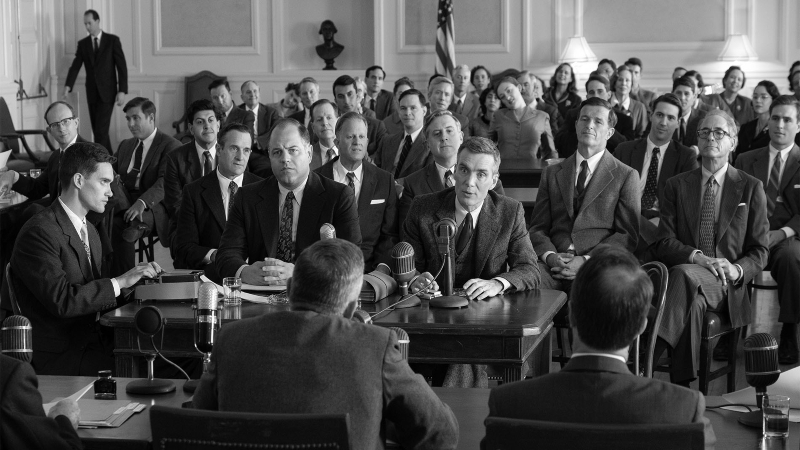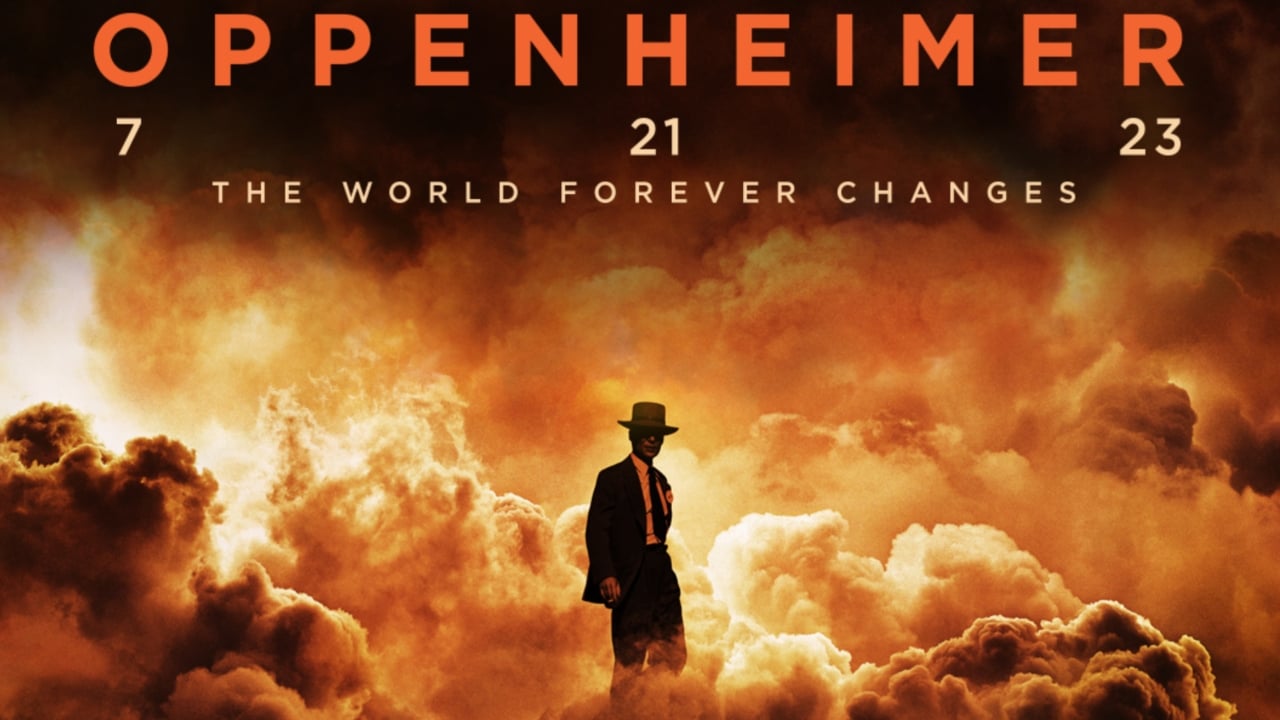The colossal events of World War II forever changed the world. Countless films have captured its essence, from gripping thrillers to heartfelt dramas and poignant romances. Filmmakers have dared to explore various themes of the harrowing realities. Nevertheless, one enigmatic figure has remained untouched until now — J. Robert Oppenheimer. However, Christopher Nolan is ready to tell Oppenheimer’s story and unravel the enigma surrounding the Manhattan Project in the upcoming film Oppenheimer. With Cillian Murphy in the lead role as the theoretical physicist, an eponymous journey awaits as the narrative unfolds the cataclysmic consequences of the forging of an atomic bomb. Let’s delve into the story behind the film in preparation for its release on July 21.
Who Was J. Robert Oppenheimer?

Julius Robert Oppenheimer etched his name into the annals of history as the architect of the atomic age. His contributions to theoretical physics and quantum mechanics earned him widespread recognition, establishing him as one of the leading minds of his time. However, Oppenheimer’s legacy is inextricably tied to his role in the Manhattan Project. As the scientific director of the top-secret initiative, he oversaw the development of the atomic bomb during World War II.
Prior to the war, he made significant strides in theoretical physics, particularly in quantum mechanics and the study of subatomic particles. He met Albert Einstein in 1932 during Einstein’s world tour, and from colleagues, they quickly turned into friends.
Despite his remarkable scientific achievements, Oppenheimer’s career was marred by controversy. Following World War II, he became a target of suspicion and scrutiny during the McCarthy era due to his leftist political leanings and past associations. He faced accusations of disloyalty and had his security clearance revoked, significantly impacting his professional life.
Later in his career, Oppenheimer focused on teaching and became a professor at the University of California, Berkeley. He remained an influential figure in academia, continuing his research and mentoring numerous students who went on to make significant contributions to physics.
The Story Behind Oppenheimer: Manhattan Project

The upcoming film Oppenheimer centers around the infamous Manhattan Project. With J. Robert Oppenheimer as the director of the project, the world was never the same following its conclusion
The Manhattan Project and Oppenheimer’s Leadership
In 1939, physicist Albert Einstein wrote a letter to President Franklin D. Roosevelt, compelling the United States to begin research into nuclear fission due to its potential military applications. This letter prompted the establishment of the Manhattan Project. It was an undercover research and development program to build atomic bombs before Nazi Germany could do so.
Under the leadership of J. Robert Oppenheimer, the Los Alamos Laboratory became the epicenter of the Manhattan Project. Oppenheimer, a brilliant theoretical physicist, had already made significant contributions to the field before his involvement in the project. His collaboration with fellow physicist Albert Einstein established a connection between the two renowned scientists.
Despite their contrasting political leanings, Oppenheimer’s relationship with Einstein deepened over the years. Although Einstein’s pacifist principles and German nationality prevented him from participating directly in the Manhattan Project, he regretted his earlier efforts to persuade the U.S. to explore atomic weaponry. Oppenheimer himself would soon share this regret, and we shall witness his change of heart in the upcoming Oppenheimer film.
The Devastating Aftermath

The Manhattan Project, driven by Oppenheimer’s scientific judgment and leadership, achieved remarkable breakthroughs in nuclear physics, engineering, and metallurgy. Two primary methods were pursued to create atomic bombs: the uranium-235 and plutonium-239 routes. The successful development of these weapons culminated in the bombings of Hiroshima and Nagasaki in August 1945.
The destructive power unleashed by “Little Boy” and “Fat Man,” the codenames given to the uranium and plutonium bombs, respectively, led to the surrender of Japan and the end of World War II. However, these events also ignited profound ethical and moral debates regarding the use of atomic weapons. They laid the groundwork for the subsequent Cold War nuclear arms race between the United States and the USSR.
Oppenheimer, haunted by his involvement in the Manhattan Project, famously quoted from the Bhagavad-Gita upon witnessing the first successful nuclear test: “Now I am become Death, the destroyer of worlds.”
Falling Out with the Establishment
In the aftermath of the bombings, Oppenheimer’s conscience weighed heavily upon him. During a meeting with President Harry S. Truman, Oppenheimer expressed his remorse, stating that he believed they had “blood on their hands.” Truman’s dismissive response, “Never mind, it’ll all come out in the wash,” further worsened Oppenheimer’s growing disillusionment.
The strained encounter marked the beginning of Oppenheimer’s troubled story with the U.S. political and military establishment. Truman’s subsequent remark, “Don’t let that crybaby in here again,” highlighted the divide between Oppenheimer and the government’s more pragmatic stance.
Christopher Nolan’s upcoming film, Oppenheimer, promises to bring to the screen the gripping story of J. Robert Oppenheimer and his profound involvement in the Manhattan Project. Oppenheimer’s contributions were instrumental in the development of atomic weapons, from his initial collaboration with Albert Einstein to his leadership at the Los Alamos Laboratory. However, the devastating aftermath of the bombings of Hiroshima and Nagasaki cast a shadow over Oppenheimer’s legacy, making him a true Shakespearean hero. We will also see elements of Oppenheimer’s personal life, including the demise of his lover, Jean Tatlock.
Oppenheimer premiers on July 21, 2023.





